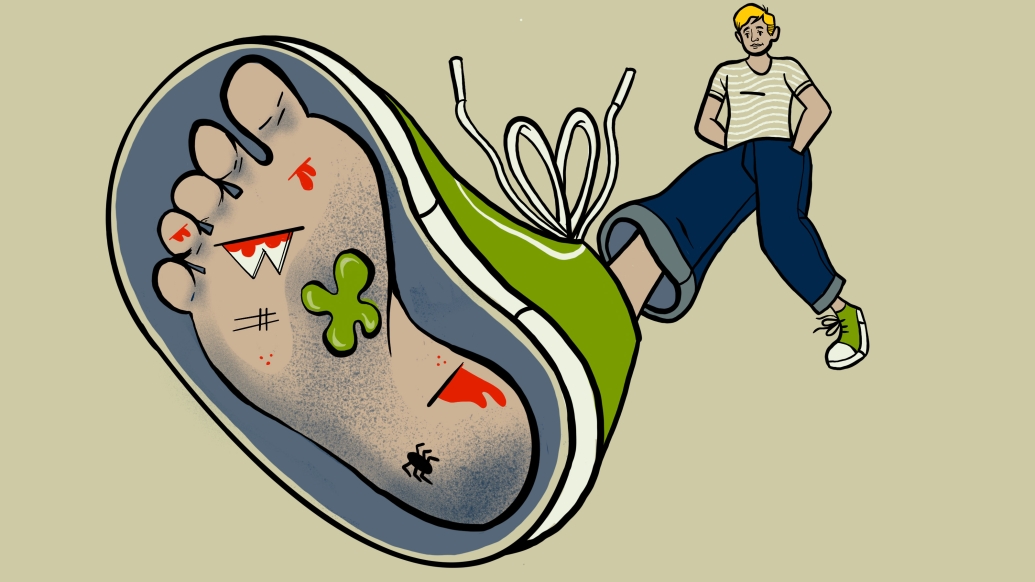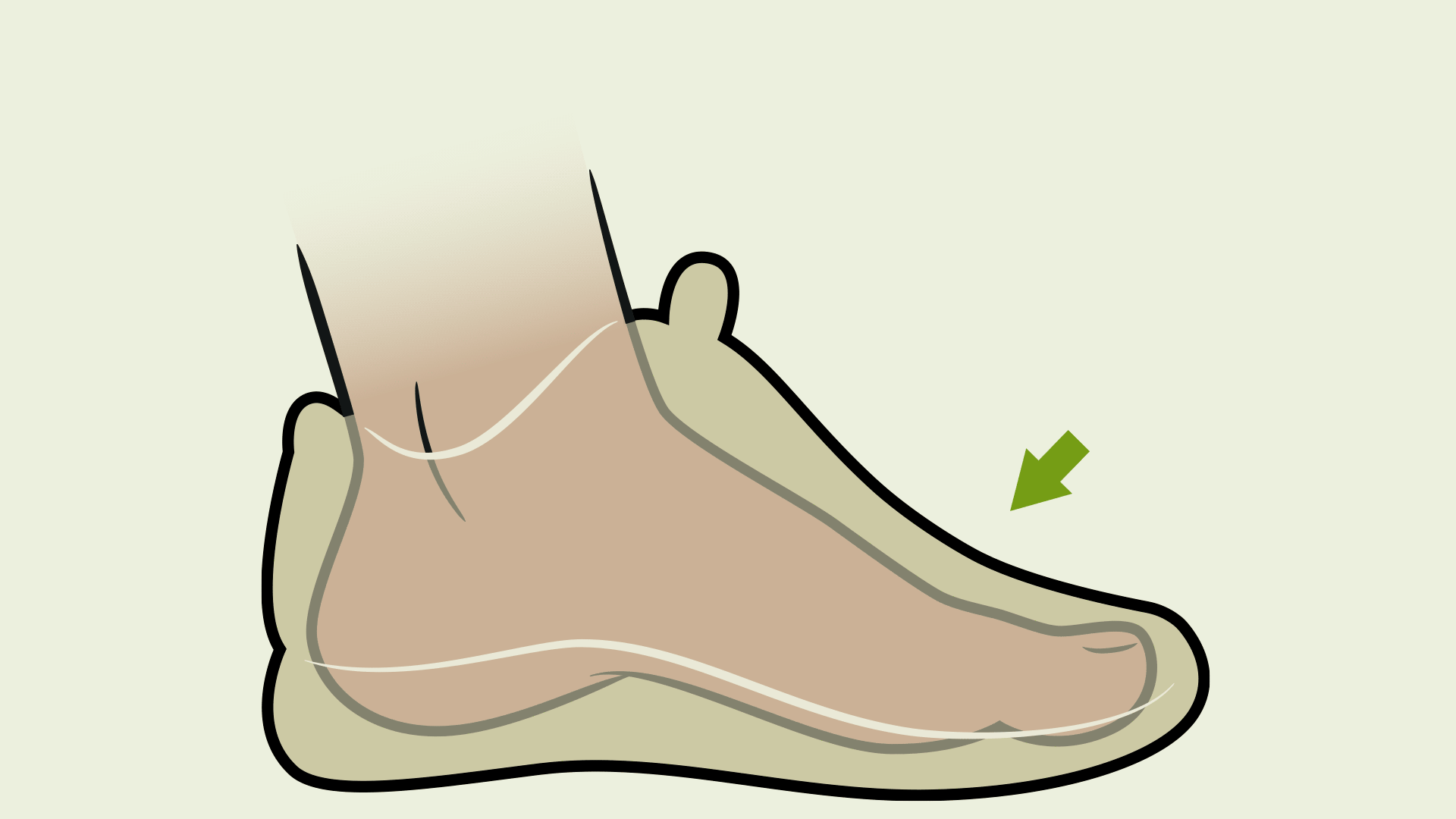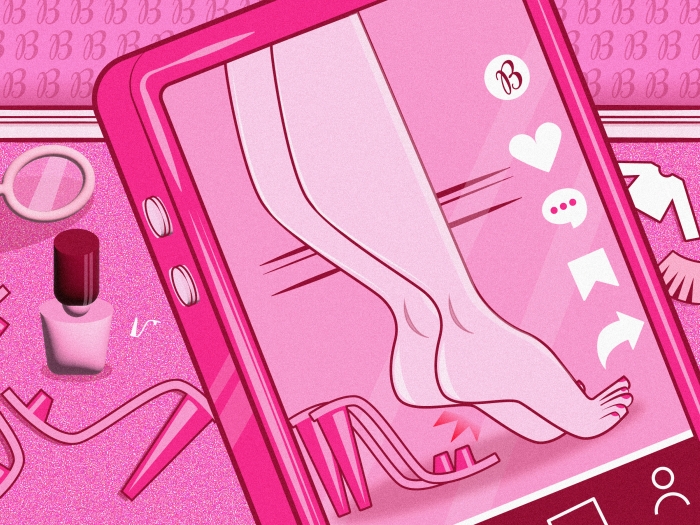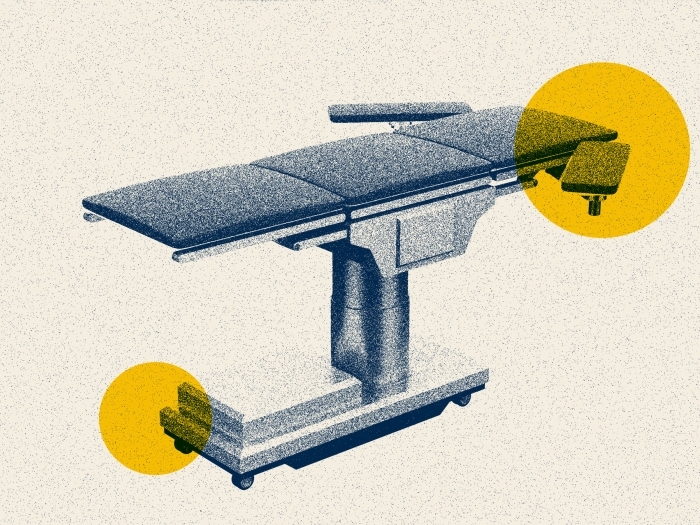Trend resurfacing on TikTok has podiatry experts worried
5:00 AM
Author |

It’s time to de-feet the trend of going shoeless.
Though the barefoot lifestyle is not new – as evidenced by various types of barefoot or minimalist shoes and other products – the movement is resurfacing thanks to TikTok.
Users on the popular social media app are ditching their shoes in public, with some even finding discreet ways to get around the rules in their favorite places by chopping off the soles on their shoes. They boast that walking barefoot is more natural, and thus more beneficial to the feet.
Many fellow TikTok users insist that these barefoot videos are simply rage baiting, with people filming themselves doing an unusual thing for likes and shares. However, Sari Priesand, D.P.M. says the risks make the subject worth discussing even if the trend isn’t as real as it seems.
“I hope people aren't really doing this. But rage bait or not, I would highly suggest not trying it,” Priesand said.
Going barefoot in public places, especially those that are unfamiliar, puts feet at risk in several ways, Priesand says. Stepping on foreign bodies – think glass, dirt, or other debris on the ground – can create cuts, blisters, or scrapes that can become infected. Infections can breed easily in places where hundreds, if not thousands, of people are walking.
“Keep the shoes on. We’re not Flintstones."
--Sari Priesand, D.P.M.
Fungus among us
Priesand says athlete’s foot or nail fungus is a common risk of going barefoot and can make the feet itchy and tender. In nastier cases, harder to treat warts (from a virus) can develop. Plantar warts are often associated with human papilloma virus (HPV).
Conditions like these can take months to resolve and can require various medications, treatments, appointments, or even surgeries to remedy. Even when treated properly, the recurrence rates can be high.
“On surfaces that are cleaned appropriately, it can be okay. But anywhere you're barefoot, you are potentially exposed,” Priesand said. “Pools, gyms, hotels, etc. are easy spots to pick up fungus.”
Washing isn't enough
Even washing and keeping feet clean isn’t enough to avoid the risks associated with being barefoot in public. Smaller things like splinters can go unnoticed, especially for those who have neurological issues or other conditions that don’t allow them to properly feel their feet. Plus, other injuries are still possible.
“Having good foot hygiene is beneficial, but it's not going to necessarily protect you from all those things that can penetrate or hurt your feet,” she said.
Feet are also unstable without shoes, Priesand says, even when only the sole of the shoe is removed and the top is intact.
“The reason we have a sole is to help support our foot. Removing that part that is removing one of the most important parts of the shoe itself.”
Though she acknowledges it may feel more natural to be barefoot, Priesand says it is far more beneficial to find a pair of supportive shoes for everyday activities.
Minimalist or high heeled shoes generally don’t have much support, so she recommends looking for a supportive shoe or sneaker.
Adequate support

One way to test whether a shoe will offer adequate support is to examine the arch and the front part of the shoe. Bending the front of the shoe back – it should fold back naturally where the toes bend normally, but not quickly collapse in half at the midfoot. Priesand also recommends getting properly fitted for shoes and shopping at athletic stores that are likely to have supportive options.
In short?
“Keep the shoes on. We’re not Flintstones,” Priesand said.
Sign up for Health Lab newsletters today. Get medical tips from top experts and learn about new scientific discoveries every week by subscribing to Health Lab’s two newsletters, Health & Wellness and Research & Innovation.
Sign up for the Health Lab Podcast: Add us on Spotify, Apple Podcasts or wherever you get you listen to your favorite shows.

Explore a variety of health care news & stories by visiting the Health Lab home page for more articles.

Department of Communication at Michigan Medicine

Want top health & research news weekly? Sign up for Health Lab’s newsletters today!





